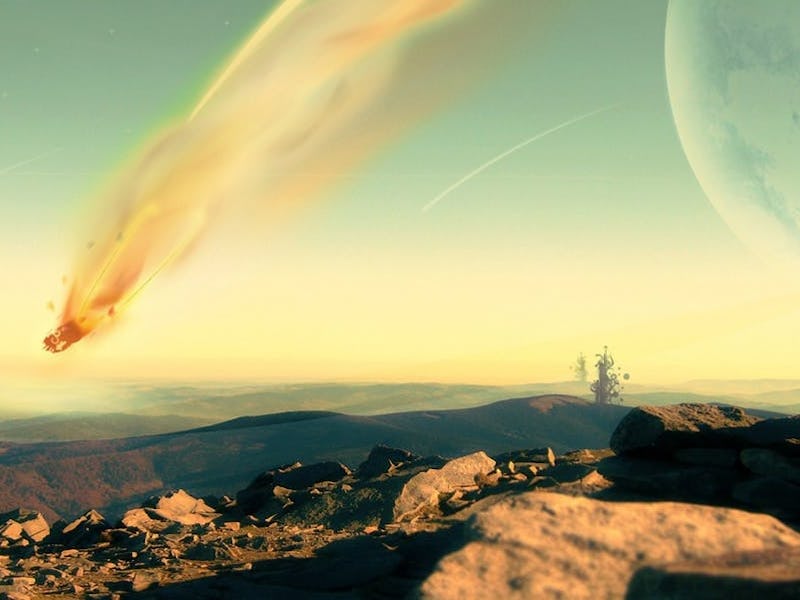Biodiversity Scientist Warns: "We're Sleepwalking into a Mass Extinction"
Diversity "can be damaged in the blink of an eye."

Most scientists acknowledge that we are smack in the middle of the planet’s sixth great mass extinction. What they’re trying to do now is understand it, in hopes that we can stop the mechanisms that are bringing so many species to their bitter end. On Wednesday, scientists publishing in Communications Biology characterize one of the most robust drivers of the current wave of extinction — which is, unfortunately, one that’s also extremely difficult to correct.
The problem, the University of Bath researchers write, is that we’re losing biodiversity at an alarming rate. Biodiversity refers to the rich variation in species that live on the planet. Since all of Earth’s species are interconnected in intricate food chains, knocking out one species often means wiping out many, making it all the more important that biodiversity is preserved.
“We are sleepwalking into a mass extinction of a magnitude unparalleled since the asteroid impact that wiped out the dinosaurs,” said Matthew Wills, Ph.D., professor of evolutionary paleobiology at the Milner Centre for Evolution at the University of Bath and co-author of the paper, in a statement released Wednesday. By sleepwalking, he seems to be referring to the fact that we are aware of the problem but not doing anything about it.
“Diversity takes millions of years to evolve but can be damaged in the blink of an eye. We are already losing diversity that has never even been documented, so it’s vitally important to understand the mechanisms that drive evolution into new species.”
Caridea shrimp species diversity flourish in freshwater rivers and lakes, which are most endangered by climate change.
By studying the historical fluctuations of biodiversity in a subgroup of shrimp called Caridea, the researchers witnessed just how vulnerable biodiversity can be to external factors. This subgroup (technically an infraorder) now contains hundreds of species, but many of them have disappeared over the millennia. Using data on the location and age of caridean fossils, the team built an evolutionary tree that showed the specific locations in which biodiversity flourished and declined over the past 200 million years.
They found the parts that historically have been the most biodiverse are the relatively isolated freshwater lakes and rivers — which happen to be especially threatened by climate change. If rising sea water disrupts these regions, they warn, the shrimp there could rapidly go extinct — and with them, all the species in the marine food chain that rely on them for sustenance. What makes their conclusion especially compelling is that it’s based on documented patterns of extinction and diversity growth over millions of years and not just data collected from during the Anthropocene.
“We hope our work will help us to learn lessons from the last 200 million of years — a different scale to that of most ecological studies,” said lead author and University of York biologist Katie Davis, Ph.D., in a statement.
The last mass extinction was the one that killed nearly all the dinosaurs, around 66 million years ago.
These days, when scientists talk about the current mass extinction, they’re careful to note it’s the planet’s sixth one. Legendary naturalist David Attenborough, for example, said in 2017 that “the damage we are inflicting on species and ecosystems is so extensive and profound that scientists now believe we are witnessing Earth’s sixth mass extinction event – the last one marked the end of the dinosaurs.”
By doing so they acknowledge that Earth’s history has seen such tragedies before and that we can look to historical patterns to understand what is happening now. Studies on ancient extinctions have shown that extremely high carbon emissions are associated with widespread death, and, relatedly, so are holes in the ozone. The destruction of animal habitats by human hands is also, obviously, another driver of species death.
While it may seem alarmist to talk about the current state of the natural world in such apocalyptic terms, some scientist think that doing so is absolutely necessary. In an interview with the Guardian in 2017, Gerardo Ceballos, a biology professor at the Universidad Nacional Autónoma de México, who published a paper on the ongoing “biological annihilation,” said that the world’s situation “has become so bad it would not be ethical not to use strong language.”